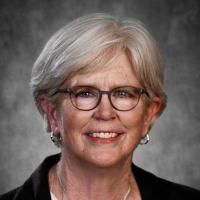Feasibility of Post-hospitalization Telemedicine Video Visits for Children With Medical Complexity.
Date
2022-03
Journal Title
Journal ISSN
Volume Title
Repository Usage Stats
views
downloads
Citation Stats
Abstract
Objectives
To evaluate feasibility and acceptability of post-hospitalization telemedicine video visits (TMVV) during hospital-to-home transitions for children with medical complexity (CMC); and explore associations with hospital utilization, caregiver self-efficacy (CSE), and family self-management (FSM).Method
This non-randomized pilot study assigned CMC (n=28) to weekly TMVV for four weeks post-hospitalization; control CMC (n=20) received usual care without telemedicine. Feasibility was measured by time to connection and proportion of TMVV completed; acceptability was measured by parent-reported surveys. Pre/post-discharge changes in CSE, FSM, and hospital utilization were assessed.Results
64 TMVV were completed; 82 % of patients completed 1 TMVV; 54 % completed four TMVV. Median time to TMVV connection was 1 minute (IQR=2.5). Parents reported high acceptability of TMVV (mean 6.42; 1 -7 scale). CSE and FSM pre/post-discharge were similar for both groups; utilization declined in both groups post-discharge.Discussion
Post-hospitalization TMVV for CMC were feasible and acceptable during hospital-to-home transitions.Type
Department
Description
Provenance
Subjects
Citation
Permalink
Published Version (Please cite this version)
Publication Info
Ming, David Y, Tingxuan Li, Melissa H Ross, Jennifer Frush, Jingyi He, Benjamin A Goldstein, Valerie Jarrett, Natalie Krohl, et al. (2022). Feasibility of Post-hospitalization Telemedicine Video Visits for Children With Medical Complexity. Journal of pediatric health care : official publication of National Association of Pediatric Nurse Associates & Practitioners, 36(2). pp. e22–e35. 10.1016/j.pedhc.2021.10.001 Retrieved from https://hdl.handle.net/10161/29623.
This is constructed from limited available data and may be imprecise. To cite this article, please review & use the official citation provided by the journal.
Collections
Scholars@Duke

David Yung Ming
I am a med-peds hospitalist and researcher with interests in improving systems of care of patients with complex health needs. My research focus areas include implementation science, population health sciences, community-engaged research, and digital health. My vision is to design, implement, evaluate, and scale programs and interventions that will simplify the delivery of complex care. By doing so, we can equitably improve the health outcomes that matter most to children and adults with complex health needs and their families.

Benjamin Alan Goldstein
I study the meaningful use of Electronic Health Records data. My research interests sit at the intersection of biostatistics, biomedical informatics, machine learning and epidemiology. I collaborate with researchers both locally at Duke as well as nationally. I am interested in speaking with any students, methodologists or collaborators interested in EHR data.
Please find more information at: https://biostat.duke.edu/goldstein-lab

Sharron Lee Docherty
Dr. Docherty’s research is aimed at improving outcomes for children, adolescents, young adults and families undergoing treatment for life-limiting and chronic conditions. She studies how to improve care models, symptom management, and decision making from diagnosis through end of life. She has methodological expertise in the use of qualitative, mixed-methods, trajectory science and visualization methodologies for complex data exploration, and intervention development and testing.

Hayden Barry Bosworth
Dr. Bosworth is a health services researcher and Deputy Director of the Center of Innovation to Accelerate Discovery and Practice Transformation (ADAPT) at the Durham VA Medical Center. He is also Vice Chair of Education and Professor of Population Health Sciences. He is also a Professor of Medicine, Psychiatry, and Nursing at Duke University Medical Center and Adjunct Professor in Health Policy and Administration at the School of Public Health at the University of North Carolina at Chapel Hill. His research interests comprise three overarching areas of research: 1) clinical research that provides knowledge for improving patients’ treatment adherence and self-management in chronic care; 2) translation research to improve access to quality of care; and 3) eliminate health care disparities.
Dr. Bosworth is the recipient of an American Heart Association established investigator award, the 2013 VA Undersecretary Award for Outstanding Achievement in Health Services Research (The annual award is the highest honor for VA health services researchers), and a VA Senior Career Scientist Award. In terms of self-management, Dr. Bosworth has expertise developing interventions to improve health behaviors related to hypertension, coronary artery disease, and depression, and has been developing and implementing tailored patient interventions to reduce the burden of other chronic diseases. These trials focus on motivating individuals to initiate health behaviors and sustaining them long term and use members of the healthcare team, particularly pharmacists and nurses. He has been the Principal Investigator of over 30 trials resulting in over 400 peer reviewed publications and four books. This work has been or is being implemented in multiple arenas including Medicaid of North Carolina, private payers, The United Kingdom National Health System Direct, Kaiser Health care system, and the Veterans Affairs.
Areas of Expertise: Health Behavior, Health Services Research, Implementation Science, Health Measurement, and Health Policy
Unless otherwise indicated, scholarly articles published by Duke faculty members are made available here with a CC-BY-NC (Creative Commons Attribution Non-Commercial) license, as enabled by the Duke Open Access Policy. If you wish to use the materials in ways not already permitted under CC-BY-NC, please consult the copyright owner. Other materials are made available here through the author’s grant of a non-exclusive license to make their work openly accessible.
